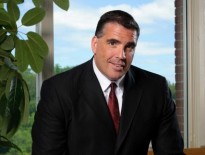The Bay State’s grand casino experiment is in danger of going bust.
Massachusetts was sold the idea that a trio of big resort casinos, with their hotels, restaurants, shops and entertainment venues, would become super-charged boosters of economic development, creating tens of thousands of jobs.
But that vision is fading fast amid an explosion in gambling development across Southern New England, one that threatens to leave us with a landscape littered with cookie-cutter gambling halls battling to survive in an overcrowded market.
The latest milestone in this downward slide can be seen along the Boston to Providence corridor, where the potential for as many as six casinos threatens to inundate Southeastern Massachusetts. The biggest threat of this flood of new gambling proposals is to the viability of Steve Wynn’s grand $1.7 billion Boston-area casino – the last, intact vestige of those glossy casino resort plans the state was promised.
“That is the danger that is on the horizon,” said Clyde Barrow, chairman of the political science department at the University of Texas-Rio Grande Valley and a long-time expert on the New England gaming market.
Casino Arms Race
So how in the world did we end up with so many casino proposals south of Boston?
For years, Twin River, Rhode Island’s flagship casino, with thousands of slot machines and dozens of table games, dominated the local market. That changed in June, when Massachusetts opened the first of four planned gambling venues, the $225 million Plainridge Park, right off of I-95 on the Rhode Island border.
The Massachusetts Gaming Commission was then seriously considering whether to license a full-scale resort casino for the region – with a $675 million proposal in Brockton in the offing – when the competitive landscape began to shift in a big way.
First, Twin River, threatened by all the new competition brewing in Massachusetts, unveiled plans for a satellite casino within a few hundred feet from the state line in Tiverton. Then, last month, the Mashpee Wampanoag Tribe’s plans for a $500 million casino in Taunton finally won federal approval, with the Bureau of Indian Affairs agreeing to create a tribal reservation on which the gambling palace could be built. After years of predictions by the tribe of imminent federal approvals never panned out, the tribe’s casino prospects had been pretty much discounted by the gaming commission and industry observers alike.
Finally, the Aquinnah Wampanoag tribe has rolled out its own plans for a gambling hall on Martha’s Vineyard, with the tribe also seen as having the option of pursuing a project on the mainland in the Fall River area – where it has proposed casinos in the past.
A Threat To Wynn
There’s no way that Southeastern Massachusetts, which has some of the poorest and hard-hit cities in the state – Brockton, New Bedford, Fall River – can handle six casinos.
After opening with a bang, Plainridge has seen a steep falloff in revenue in its first four months in business, already a warning sign that the market in the southern tier of the state is approaching saturation.
But while a pack of revenue-starved casinos south of Boston is hardly an attractive picture, what happens in Southeastern Massachusetts most definitely won’t stay there.
Chicago-based Rush Gaming’s proposal for a $675 million casino in Brockton will be a direct competitor to Wynn’s grand Everett gambling palace. And if the Mashpee Wampanoag can dodge potential legal challenges and get its $500 million casino built, the threat to Wynn multiplies.
Brockton is less than 40 minutes from Boston. That’s a heck of a lot more convenient a location for the suburbs south of Boston than Wynn’s planned high-rise Everett casino. For the would-be gambler south of Boston, this requires driving under downtown Boston on the Central Artery and then battling through traffic-clogged Charlestown, including Sullivan Square, to get to Everett.
“Brockton is right up there competing with Wynn for the same Boston market,” Barrow said.
Sure, the allure of Wynn’s casino extravaganza will certainly be motivation enough for many people, but maybe not so much the so-called “convenience gamblers” that simply want to play the slot machines.
These are the most profitable players in the gambling business and Rush’s Brockton casino would surely lure away many, who, for the lack of another option, would have gone to Wynn’s new casino.
The profits made on slot machines are what pays for all the shops, show and restaurants, even at a high-class casino, Barrow noted.
“The job-creating components of a casino tend to be the nongaming components and the table games, but it’s the slow machines that provide the profits,” he said.
But don’t take my word for it. Rush Gaming recently filed estimates with the Massachusetts Gaming Commission on its proposed Brockton, predicting it would knock Wynn’s revenues by 9.2 percent. Add in the Mashpee Wampanoag Tribe’s casino, and that number rises to 12.6 percent, or nearly $100 million. That’s real money, even for guy like Steve Wynn.
In fact, Rush and the Mashpee Wampanoag casino won’t have any choice but to go hard at Wynn in a battle for the Boston market. After all, the Southeastern Massachusetts market is hardly big enough to support both casinos, let alone Twin River, its proposed satellite casino in Tiverton, and Plainridge Park.
That trio of casinos will pretty much have a lock on the market to the south of the Rush and Mashpee Wampanoag casinos.
Downsized Dreams
If you want to see what might happen to Wynn’s project if the Boston to Providence corridor becomes Casino Alley, look no further than MGM’s proposed $800 million Springfield casino.
A joint effort by Foxwoods and Mohegan Sun to build a satellite casino right on the state line – and a very short ride to Springfield – has cast a dark cloud over MGM’s plans.
Citing rising construction costs, MGM has nixed a centerpiece hotel tower and will now squeeze all the rooms into a six-story building. The company has also proposed downsizing restaurant and retail space, as well as a planned bowling alley. A proposal for luxury apartments has been offloaded as well.
Given a big part of MGM’s business plan was raiding the Connecticut market – a dead idea if Foxwoods and Mohegan succeed in their plans for a satellite casino – more than just rising costs are now at play.
Fortunately, the Massachusetts Gaming Commission still has time to act when it comes to protecting Wynn’s casino and its potential to be not just another gambling hall, but a driver of economic activity. After all, it hasn’t awarded Rush a casino license to build in Brockton.
Still, there are a lot factors beyond the commission’s control, including the Mashpee Wampanoag Tribe’s casino plans, which are beyond its jurisdiction. Certainly the explosion in casino proposals we are seeing now wasn’t what Patrick, or for that matter Senate President Stanley Rosenberg and House Speaker Robert DeLeo, promised back in 2011.
Here’s hoping we end up with at least one half-decent resort casino, not just a bunch of honky-tonk gambling joints.









